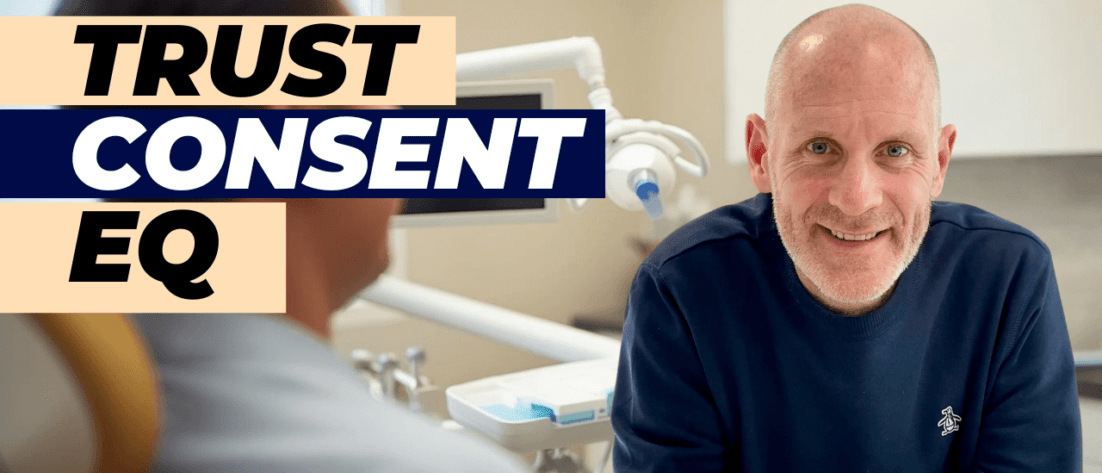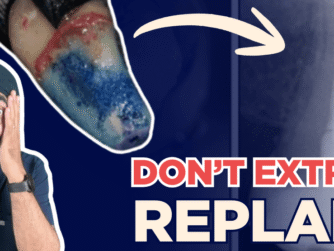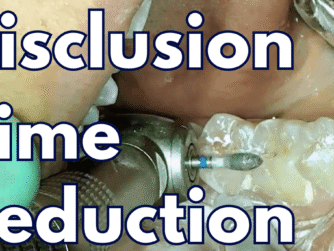Podcast: Play in new window | Download (Duration: 1:04:53 — 90.0MB)
Subscribe: RSS
How should you gain consent for ELECTIVE treatments?
Is selling in dentistry something to avoid, or an essential part of patient care?
How much does emotional intelligence really matter for your success and happiness?
Dr. Colin Campbell joins for a powerful episode that dives into consent, sales, and the balance between profit and ethics in dentistry. He also unpacks the huge role of emotional intelligence—not just in clinical practice, but in life.
Expect real talk, strong opinions, and communication gems that can reshape the way you connect with patients and approach your career.
Protrusive Dental Pearl: Read (or listen to) the book Let Them by Mel Robbins — a powerful reminder to take control of your own life and emotions instead of letting outside events dictate them.
Need to Read it? Check out the Full Episode Transcript below!
Takeaways
- Building trust with patients is crucial for effective consent.
- Consent should be a relationship management exercise, not just a legal formality.
- Understanding the patient’s perspective is key to effective communication.
- Elective treatments should be approached with caution and ethical considerations.
- Sales in dentistry is not a dirty word; it’s about providing solutions to patients.
- Emotional intelligence is a vital skill for dentists to develop.
- Good dentistry is about doing what is best for the patient, not just for profit.
- Continuous education and self-improvement are essential for success in dentistry.
HIghlights of this episode:
- 00:00 Teaser
- 00:44 INTRO
- 01:44 Protrusive Dental Pearl
- 02:58 Welcoming Dr. Colin Campbell
- 04:55 Colin’s Background and Philosophy
- 05:36 The Importance of General Dentistry
- 08:40 Finding a Niche vs. Being a Generalist
- 11:14 Understanding Consent in Dentistry
- 17:42 Fear of Losing the “Sale”
- 18:50 Building Trust with Patients
- 22:09 Consent Process Overview
- 22:49 Patient Consultation Process – Building the Bridge to Trust
- 29:00 Developing Emotional Intelligence (EQ)
- 30:00 Patient Consultation Process – The Mechanics
- 30:58 Patient Consultation Process – Exploring Options
- 31:13 Join Protrusive Guidance
- 34:34 Patient Consultation Process – Exploring Options
- 34:36 Patient Consultation Process – Follow-Up and Consent Pathway
- 35:54 Patient Pathways After Consultation
- 36:48 Treatment Plan Letters & Legal Angle
- 38:45 Approach to Consent Letters
- 40:21 Personality Types in Consultations
- 42:21 Systematizing Your Process
- 43:37 Ethics in Elective Treatments
- 53:15 Guidance for New Dentists on Elective Treatments
- 56:33 Interjection
- 57:48 Guidance for New Dentists on Elective Treatments
- 57:56 Sales in Dentistry
- 01:03:05 Conclusion and Final Thoughts
- 01:05:20 OUTRO
✨ Transform Your Dentistry ✨
🦷 Campbell Clinic – world-class private care in Nottingham.
📚 Campbell Academy – ethical implant training from beginner to expert.
✍️ Colin Campbell Blog – daily insights to challenge & inspire.
If you liked this episode, check out ‘How to Win at Life and Succeed in Dentistry’ with Richard Porter
#PDPMainEpisodes #CareerDevelopment #Communication #BestofProtrusive
This episode is eligible for 1 CE credit via the quiz on Protrusive Guidance.
This episode meets GDC Outcomes A and D
AGD Subject Code: 550 – Practice Management and Human Relations
Aim: To explore the ethical, emotional, and practical aspects of private dentistry, with a focus on gaining valid consent, balancing profit with ethics.
Dentists will be able to –
- Explain the importance of trust and rapport in the consent process.
2. Recognize the ethical challenges of elective treatments.
3. Outline strategies for building long-term career satisfaction and avoiding burnout.







